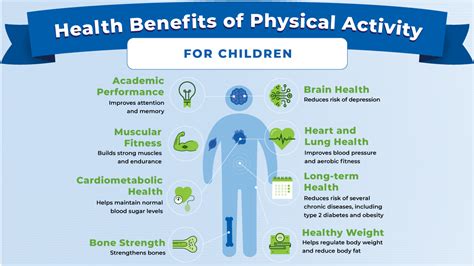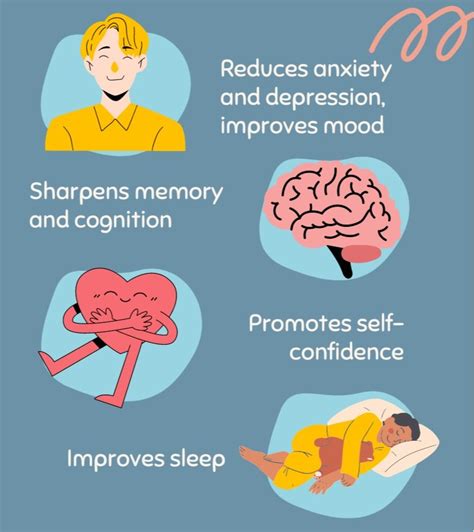Intro
Discover the 7 benefits of walking, including improved physical health, mental wellbeing, and increased energy, through regular walking exercises and outdoor activities, boosting overall fitness and reducing stress.
Walking is one of the simplest and most effective forms of exercise that can be incorporated into our daily routine. It is an activity that is accessible to almost everyone, regardless of age, fitness level, or financial resources. Despite its simplicity, walking offers a multitude of benefits for our physical and mental health, making it an excellent choice for those looking to improve their overall well-being. In this article, we will delve into the numerous advantages of walking and explore how it can positively impact our lives.
The importance of walking cannot be overstated. In today's fast-paced world, where sedentary lifestyles are becoming increasingly common, it is crucial that we prioritize physical activity to maintain our health. Walking is an excellent way to do so, as it is a low-impact exercise that can be done almost anywhere, at any time. Whether it's a brisk walk around the block, a leisurely stroll through the park, or a hike through nature trails, walking is an activity that can be tailored to suit individual preferences and fitness levels.
As we explore the benefits of walking, it becomes clear that this simple activity can have a profound impact on our lives. From improving cardiovascular health to boosting mental well-being, the advantages of walking are numerous and well-documented. In the following sections, we will examine the benefits of walking in greater detail, providing insights into how this activity can be incorporated into our daily routine to improve our overall health and quality of life.
Physical Health Benefits

- Weight management: Walking can help with weight loss and maintenance, as it burns calories and builds muscle.
- Improved cardiovascular health: Regular walking can lower blood pressure, improve circulation, and reduce the risk of heart disease.
- Increased strength and flexibility: Walking can help build strength in the legs, hips, and lower back, while also improving flexibility and range of motion.
- Better bone density: Weight-bearing exercise like walking can help improve bone density, reducing the risk of osteoporosis and fractures.
Reducing the Risk of Chronic Diseases
Walking can also play a crucial role in reducing the risk of chronic diseases, such as diabetes, certain types of cancer, and stroke. By incorporating walking into our daily routine, we can improve our overall health and reduce the likelihood of developing these conditions. For example, a study published in the Journal of the American Medical Association found that walking at least 30 minutes a day can reduce the risk of type 2 diabetes by up to 30%.Mental Health Benefits

- Reduced stress and anxiety: Walking can help reduce stress and anxiety by releasing endorphins, also known as "feel-good" hormones.
- Improved mood: Regular walking can improve our mood, reducing symptoms of depression and improving overall mental well-being.
- Increased self-esteem: Walking can help improve self-esteem, as it provides a sense of accomplishment and confidence.
- Better sleep: Walking can help improve sleep quality, as it can reduce stress and anxiety, making it easier to fall asleep and stay asleep.
Improving Cognitive Function
Walking can also improve cognitive function, including memory, attention, and processing speed. A study published in the journal Neurology found that walking at least 30 minutes a day can improve cognitive function in older adults, reducing the risk of dementia and Alzheimer's disease.Social Benefits

- Meeting new people: Walking can provide opportunities to meet new people, whether it's through a walking group or a chance encounter on a trail.
- Building relationships: Walking can help build relationships, as it provides a shared activity and common interest.
- Improving communication skills: Walking can help improve communication skills, as it provides a relaxed and informal setting for conversation.
- Increasing sense of community: Walking can help increase our sense of community, as it provides a connection to our surroundings and the people in them.
Creating a Sense of Belonging
Walking can also create a sense of belonging, as it provides a connection to our community and the people in it. By walking in our neighborhood or local park, we can feel more connected to our surroundings and the people who live there.Environmental Benefits

- Reducing carbon emissions: Walking can reduce carbon emissions, as it eliminates the need for fossil fuels and reduces air pollution.
- Promoting sustainable transportation: Walking can promote sustainable transportation, as it provides a healthy and environmentally friendly alternative to driving.
- Improving air quality: Walking can improve air quality, as it reduces the number of cars on the road and decreases air pollution.
- Supporting local economies: Walking can support local economies, as it provides opportunities to shop and dine at local businesses.
Creating a More Sustainable Future
Walking can also create a more sustainable future, as it promotes environmentally friendly transportation and reduces our reliance on fossil fuels. By incorporating walking into our daily routine, we can reduce our carbon footprint and promote a healthier, more sustainable environment.Practical Tips for Incorporating Walking into Your Daily Routine

- Schedule it in: Treat walking as a non-negotiable part of your daily routine, scheduling it in your calendar and committing to it.
- Find a walking buddy: Walking with a friend or family member can provide motivation and accountability, making it more enjoyable and helping you stick to your routine.
- Start small: Begin with short walks and gradually increase the distance and duration, allowing your body to adjust and build up your endurance.
- Make it convenient: Find ways to incorporate walking into your daily routine, such as walking to work, school, or the grocery store.
Overcoming Obstacles and Staying Motivated
Incorporating walking into our daily routine can be challenging, especially when faced with obstacles such as bad weather or lack of motivation. However, with a few strategies and tips, we can overcome these obstacles and stay motivated. For example, finding a walking buddy or joining a walking group can provide motivation and accountability, while investing in proper gear and clothing can make walking more comfortable and enjoyable.What are the benefits of walking for physical health?
+Walking can help with weight management, improve cardiovascular health, increase strength and flexibility, and reduce the risk of chronic diseases such as diabetes and certain types of cancer.
How can walking improve mental health?
+Walking can reduce stress and anxiety, improve mood, increase self-esteem, and improve sleep quality, making it an excellent activity for improving mental health and well-being.
What are some practical tips for incorporating walking into my daily routine?
+Schedule walking into your daily routine, find a walking buddy, start small, and make it convenient by incorporating walking into your daily activities, such as walking to work or school.
As we conclude our exploration of the benefits of walking, it is clear that this simple activity can have a profound impact on our physical and mental health, social connections, and environmental sustainability. By incorporating walking into our daily routine, we can improve our overall well-being, reduce the risk of chronic diseases, and create a more sustainable future. We invite you to share your own experiences and tips for incorporating walking into your daily routine, and to encourage others to do the same. Together, we can promote a healthier, more sustainable lifestyle, one step at a time.
